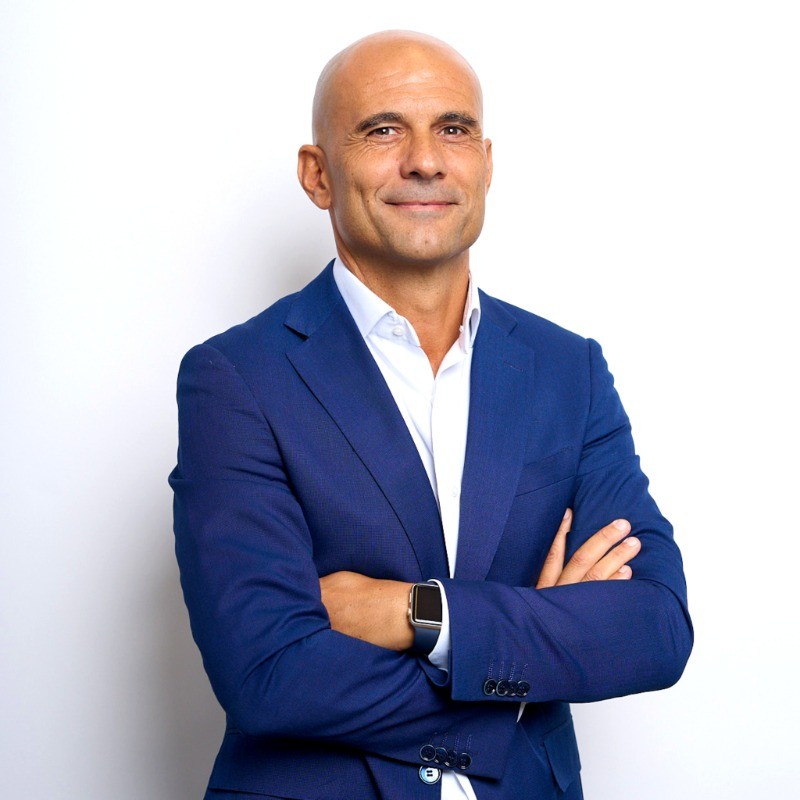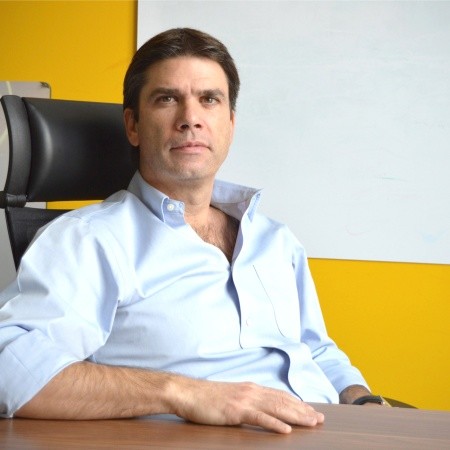Interview with
Effective people management is people development

Effective people management is people development
In this article: This interview highlights Luca Manfredi’s view that true leadership stems from developing people, not just managing for results. Focusing on individual growth fosters autonomy, motivation, and sustainable outcomes. He promotes a coaching mindset, guiding team members through stages of development. Leadership, he says, is the result of helping others thrive. The impact benefits individuals, managers, and the entire organization.
Contenuto
- What changes, in your opinion, when a manager shifts their focus from results to people development? And what impact does it have on company culture?
- Is there a story or moment where one of your actions made a real difference in someone’s growth journey?
- Many confuse people management with people development. How do you distinguish these two in practice?
- In your view, leadership is an outcome, not a goal. How does this shape the way you lead your teams or projects?
- If you had to give just one practical piece of advice to someone looking to evolve their leadership style, what would it be?
What changes, in your opinion, when a manager shifts their focus from results to people development? And what impact does it have on company culture?
When a manager shifts their focus from results to people development, everything changes. The relationship with team members changes, behaviors change, both the manager’s and the team’s and as a result, performance changes too. After a period of deep focus on growing people’s autonomy, results become a sustainable and fulfilling outcome of a broader process: the development of skills, autonomy, and mindset to face the challenges of the role. But in order to focus on growth, you need to know how to do it, and equip yourself with a proper manager-coach toolbox.
First, it’s essential to develop ways of better understanding yourself and others. Realizing that everyone is unique, and learning how to value and support each person in a personalized way, is the only truly effective approach to growth and motivation.
Second, you need to recognize that developing autonomy is a human process that we all go through and it involves four phases, each with its own emotions, thoughts, experiences, and needs. Every stage requires different skills and awareness in order to move to the next and progress toward greater autonomy.
To move from unconscious incompetence to unconscious competence, a manager’s role as guide, gardener, and coach is essential. In each phase, feedback must be used in slightly different ways, increasingly reflective and question-driven, to promote autonomy and empowerment.
It’s also crucial to foster and maintain an adult-to-adult relationship with team members — not a parent-child dynamic.
The cultural impact of this shift is clearly win-win-win:
The employee benefits by seeing their manager actively helping them grow and succeed.
The manager benefits by seeing their team become more autonomous, delivering results with greater satisfaction, motivation, and engagement, and requiring less effort.
The organization benefits from improved performance, skills, autonomy, retention, engagement, and attraction of valuable talent capable of growing and delivering more value.
When a leader knows how to grow people, everyone wins.
Is there a story or moment where one of your actions made a real difference in someone’s growth journey?
Over the years, I’ve had the privilege of coaching, mentoring, and guiding many leaders toward a servant leadership approach focused on wellbeing and autonomy.
When I was working as a manager-coach, I recall at least two HR interns who are now outstanding HR Managers, thanks, in part, to the support I offered at the start of their careers.
More recently, around thirty leaders and managers I’ve coached or mentored on the Pack platform have reported feeling less stressed and more fulfilled, having shifted from a demanding, traditional management style to a more rewarding and motivating approach centered on people development.
Many confuse people management with people development. How do you distinguish these two in practice?
Management often means approaching people as resources to organize and coordinate in order to maximize immediate results, a bit like an engineer or mechanic assembling machine parts. It’s a short-term view: people are expected to "work", and if they don’t, like broken gears, they’re replaced.
Development, on the other hand, means seeing people as talents to train and plants to nurture, helping them flourish and bear fruit. It’s a long-term mindset, focused on care, investing time and patience to build skills and autonomy. Both coaches and gardeners know that achieving extraordinary, sustainable outcomes takes time.
Those who focus on development invest time consistently with their people, and also invest in self-reflection and training — learning how to support growth in a way that’s personalized and aligned with each individual’s unique traits and potential.
In your view, leadership is an outcome, not a goal. How does this shape the way you lead your teams or projects?
We’ve all experienced what it’s like to have a manager who helps us grow and become more autonomous. We remember how they made us feel — we saw them as leaders.
That’s why I say leadership is often the result of what you do to help your team grow — and that means everyone on the team, not just the most motivated or easy-to-manage ones.
If you had to give just one practical piece of advice to someone looking to evolve their leadership style, what would it be?
First, I’d say: picture yourself in the future. When things are working the way you hope, what will your people say and think about you? What will you say and think about yourself? To get somewhere meaningful, you need a clear destination and to desire it enough to work toward it.
Then, start from self-awareness: your thinking and relationship styles, your current leadership style. Ask yourself:
- What should I keep doing?
- What should I start doing?
- What should I stop doing?
Finally, I’d say: get support from a coach or mentor. Someone who can help you ask the right questions, stay focused on your destination, and navigate the journey of becoming aware of — and then overcoming — your current limits as a leader.
To become a leader-coach who develops and grows others, you need either a coach who can guide you through that transformation, or a mentor who’s been there — someone who has led a team, helped people grow, and found effective ways to help other leaders do the same.
Similar posts
Ragione sociale: Pack Srl
Sede legale e domicilio fiscale: Via Marconi 45, Bologna (BO) 40122, Italia
CF e P.IVA: IT04040451207
Codice destinatario SDI: USAL8PV
N. Iscrizione Registro Imprese: 04040451207

.png)














